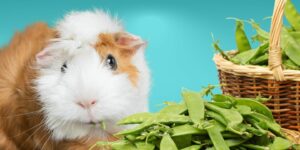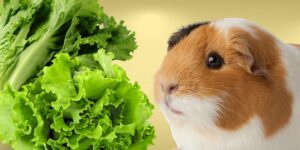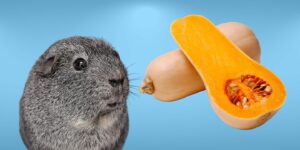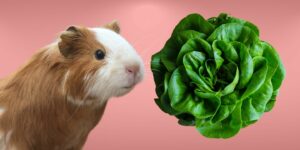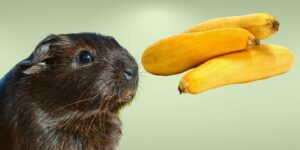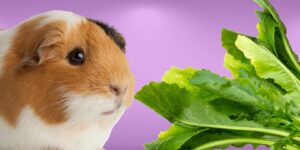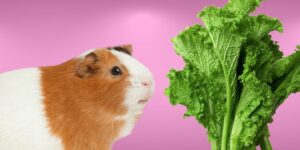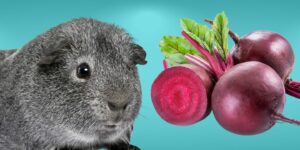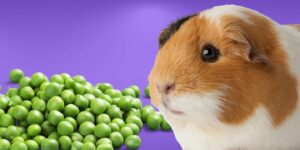Yes, guinea pigs can eat squash. However, it should only be given to them in moderation and as part of a balanced diet.
Introduction
Guinea pigs, also known as cavies, are small rodents native to South America. They are popular pets because of their friendly, social nature and their ability to bond with humans. Guinea pigs have specific dietary needs, and it is important for their owners to understand what they can and cannot eat.
Can guinea pigs eat squash?
The answer is yes, Guinea pigs can eat squash. Squash is a healthy, nutritious food that can be a tasty addition to a guinea pig's diet. Squash is a good source of vitamins A and C, as well as fiber. It also contains other essential nutrients that are important for a Guinea pig's health, such as potassium and magnesium.
How should squash be given to guinea pigs?
Squash should be given to Guinea pigs in moderation and as part of a balanced diet. Guinea pigs should not be fed only squash, as this can lead to health problems. Instead, squash should be given to them as a treat, no more than once or twice a week. When feeding squash to Guinea pigs, it is important to remove the seeds and peel the skin first. Guinea pigs cannot digest the seeds, and the skin can be difficult for them to chew. The squash should also be cut into small, bite-sized pieces to make it easier for the Guinea pig to eat.
Health benefits of squash for guinea pigs
Vitamin C
Guinea pigs cannot produce their own vitamin C, so it is essential to provide them with foods rich in this nutrient. Squash is a good source of vitamin C, which helps support their immune system and overall health.
Vitamin A
Squash is also rich in vitamin A, which is important for maintaining healthy skin, eyes, and fur in guinea pigs.
Fiber
The high fiber content in squash aids digestion and helps prevent gastrointestinal issues in guinea pigs.
Potassium and Magnesium
These essential minerals play a key role in maintaining a guinea pig's overall health, including muscle function and nerve function.
Potential risks of feeding squash to guinea pigs
Overfeeding
Feeding too much squash can lead to weight gain and obesity, which can cause several health issues in guinea pigs. Moderation is crucial.
Digestive problems
Squash contains some sugar, which can cause digestive problems if given in excess. Stick to the recommended serving size to avoid any issues.
Choking hazard
Always cut squash into small, manageable pieces to prevent choking.
Alternatives to squash for guinea pigs
While squash is a healthy option for guinea pigs, it is also important to provide them with a variety of fruits and vegetables to ensure a balanced diet. Some alternatives include:
Bell peppers
Rich in vitamin C, bell peppers are a great addition to a guinea pig's diet.
Carrots
Carrots provide essential vitamins and minerals, but should be given in moderation due to their sugar content.
Leafy greens
Dark leafy greens, such as kale, spinach, and romaine lettuce, are an excellent source of vitamins and minerals for guinea pigs.
Cucumbers
Cucumbers are high in moisture content and can help keep guinea pigs hydrated.
Tips for introducing squash to guinea pigs
Start slow
Introduce squash gradually into your guinea pig's diet to avoid digestive issues. Begin with small amounts and gradually increase the serving size over time.
Monitor their reaction
Keep an eye on your guinea pig's behavior and bowel movements after introducing squash. If you notice any digestive issues or changes in their behavior, stop feeding them squash and consult a veterinarian.
Mix with other foods
To ensure a balanced diet, mix squash with other fruits and vegetables when feeding it to your guinea pig.
Keep it fresh
Always provide fresh, clean squash to your guinea pig. Avoid feeding them spoiled or moldy squash, as it can cause health problems.
Conclusion
In conclusion, Guinea pigs can eat squash. However, it should be given to them in moderation and as part of a balanced diet. Squash can provide important nutrients for Guinea pigs, but it should not be their only source of food. By following these guidelines, Guinea pig owners can ensure that their pets get the nutrition they need to stay healthy and happy.



